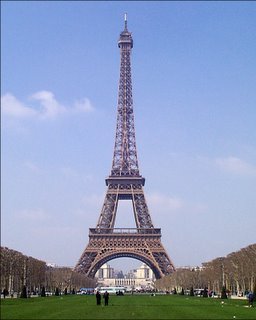The call by the Mayors in Auckland to toll existing roads is a healthy one. They want to do it to raise more money to build roads, but it will have a number of impacts when it eventually happens – and I believe it is inevitable. It will cut demand at peak times sufficiently that there wont be a need to build many new roads – this should please the Greens, as well as the economists. You see with road pricing, if done properly, everyone wins. The loony leftwing populist Residents Action Movement (RAM) which won some seats at the local body elections two years ago opposes it, and frankly it is a bunch of conspiracy theory driven lunatic rabid slobbering at the mouth old fashioned socialists.
The Auckland Mayors want road pricing to get additional money (to build more roads), rather than replace existing charges – it should replace rates and mean a cut in petrol tax – that is the main argument for it. Then at off peak times you pay next to nothing, compared to peak times – on average, the same amount of money is collected to pay for road maintenance and construction.
With road pricing, done properly and on a commercial basis, the motorist wins because roads are no longer congested – you can pretty much guarantee that if you pay for the road, you’ll get to where you are going on time. In addition, instead of a tax you pay with petrol, the money you pay goes to whoever runs the roads, so your roads are better maintained and there is money to pay for new roads when they are really needed. Public transport wins, because buses and taxis wont be on congested roads and pricing means that they are more competitive with cars (as the price of road space can be more readily spread among many passengers). Residents win because there is less traffic and less pollution. Environmentalists like it because it reduces congestion, reduces emissions and improves the attractiveness of modes other than driving. People in uncongested parts of the country win because they can no longer complain about paying for Auckland’s roads (which they never actually did anyway) – Aucklanders would be paying for their roads explicitly. Businesses like it because they have certainty of journey time.
The Auckland Mayors want road pricing to get additional money (to build more roads), rather than replace existing charges – it should replace rates and mean a cut in petrol tax – that is the main argument for it. Then at off peak times you pay next to nothing, compared to peak times – on average, the same amount of money is collected to pay for road maintenance and construction.
With road pricing, done properly and on a commercial basis, the motorist wins because roads are no longer congested – you can pretty much guarantee that if you pay for the road, you’ll get to where you are going on time. In addition, instead of a tax you pay with petrol, the money you pay goes to whoever runs the roads, so your roads are better maintained and there is money to pay for new roads when they are really needed. Public transport wins, because buses and taxis wont be on congested roads and pricing means that they are more competitive with cars (as the price of road space can be more readily spread among many passengers). Residents win because there is less traffic and less pollution. Environmentalists like it because it reduces congestion, reduces emissions and improves the attractiveness of modes other than driving. People in uncongested parts of the country win because they can no longer complain about paying for Auckland’s roads (which they never actually did anyway) – Aucklanders would be paying for their roads explicitly. Businesses like it because they have certainty of journey time.
and who can argue against paying for what you use - well plenty...
The problem is that as long as roads are run through socialist central planning with flat rate pricing, we don’t KNOW if there aren’t enough roads, too much roads or if it is about right. If a company ran all of the state highways and main arterial roads in Auckland, it would price vehicles to pay for the cost of maintaining those roads (and non-state highways are about half funded from rates) and to keep traffic flowing. Why? Because stationery traffic doesn’t pass a toll point or generate many kilometres of travel – some toll roads overseas do this, and it works. Yes revenue is high at peak times, but for about a third of the day the roads are underutilised – and the price is very low at those times. The price would be higher in the peak direction flow in the morning (to the city) than in the other direction. Just like airlines, phone companies, hotels and other services. Peak demand would be suppressed by pricing, but if there was sufficient high demand spread out during the day, a road company may pay for more lanes or a new road. Another company may build another road. At peak times, people who drive would choose to pay to get a fast trip, or catch the bus or train, or businesses may shift to less congested areas, which is surely a good thing. In addition, telecommuting and other more innovative ways of working would get an enormous boost – because the resource that is run like a Polish shipyard (the roads) are now priced properly.
So what about the arguments against it? I thought I should go through RAM’s “facts” on its press release and see how true they are (note RAM has no website):
1. “tolls will likely have a negative impact on those who can least afford them, being - low and middle income earners, students, the elderly, those who do not live close to work and those who are not close to public transportation. In addition, tolls will probably cause house prices to rise near work centres.” Well this is called pricing, but lets think about this rationally. Road pricing will match congestion, and be targeted at peak times (when unemployed people and the elderly never travel, or shouldn’t travel!), on routes to the central city (where most low income earners don’t work). It will mainly impact on people middle to upper income with jobs in the central city – but regardless, this is about people paying for what they use. Road space is at a premium on certain routes at certain times, at those times you pay for the privilege.
2. “Low income workers tend to travel greater distances across Auckland than other groups and will be most disadvantaged if tolls, cordon or other, are introduced.” This depends entirely how a scheme is developed, but most of these workers aren’t working downtown – they don’t use the most congested routes as much as others and at the moment they pay the most petrol tax. Besides, if you use more road space than anyone else, why shouldn’t you pay for it?
3. “Tolls will likely have serious consequences for families with children and those with high overheads such as mortgages “ Since when are the children taken downtown at peak times, unless they are going to school there? This is raving nonsense. This same organisation tends to support higher taxes, but only on the hated rich – this has serious consequences for this group.
4. “The CEO of the MoT and Secretary of Transport Dr Robin Dunlop, has strongly advocated for tolls in the past - as co-author of Road Reform, The Way Forward (1997), and a few years ago within an opinion paper to the World Bank suggesting that New Zealand roads will probably be tolled in the future" So? It is up to Parliament to pass the legislation, the Ministry only provides advice, and the existing legislation to allow tolling on new roads was passed before Dr Dunlop became Secretary for Transport. This is probably some claim there is some World Bank conspiracy to introduce tolling - since these are the claims that RAM has made in the past.
5. “A visiting professor said last year, that it was almost impossible to conduct an audit on Britain's toll regime. Issues involve the deliberate lack of transparency and accountability on the part of Government and private sector investors.” Notice how RAM wont quote the person by name, so the source cannot be checked. Britain has no toll regime, but there are a handful of toll roads and two congestion pricing schemes operating. This claim is arrant nonsense in relation to the London scheme, which does not have private sector investors involved and is under very close observation. Ken Livingstone (hardly a pro-capitalist big business friend) introduced it and got re-elected – the London public obviously are reasonably happy with him.
6. “The Mayors are pushing for a toll regime that potentially will line the pockets of Councils, Government and private sector corporations and interests. Predictably, the Government study on tolls due for publication this year will show tolls to be a viable means of raising funds for land transport. Officials are key stakeholders with a vested interest.” This is very close to defamation, accusing your political opponents of corruption. The government study on Auckland road pricing will say what it says when it is completed, but it probably WILL say road pricing is a viable way of raising funds – it works elsewhere, it is not a conspiracy. To further accuse officials of promoting this because they may get some backhand deal of money is simply wrong – this is New Zealand, not Africa. Maybe road pricing will be supported because it makes rational economic sense!
7. “I organised and was a representative at a public meeting with ACC, ARC, Transit, Transfund and local iwi (invited) on the Victoria Park Tunnel (SH1) issue in 2003. It was at this meeting that Transit agreed to a tunnel given adequate funding. At the time, Auckland's Mayors, Councils and Government were working on tolls to pay for new roads and changes to the Resource Management Act, behind doors closed to the public.” Actually no, the Land Transport Management Bill went to Select Committee, it was quite public, Labour announced the policy of tolling new roads in 2002. You’ll find that every single step of public policy is not open to the general public, because nothing would happen.
8. “Over the last 20 years, the New Zealand public demanded successive governments pay for land transport infrastructure using existing road user charges which are petrol taxes. For 20 years, successive governments have ignored the public's request and used around half the billions of dollars collected in petrol excise taxes for other expenditure.” Yes, that’s true. Although all road user charges, which are a form of road pricing (licensing distance, weight and axle configuration, paying for the use of the roads) have been around for 27 years and all of that money goes on roads. Labour, National, NZ First, United Future, the Alliance and Greens all supported governments that maintained this. See my post below that explains that Labour has been using more petrol tax money than any other government for land transport.
9. “Mayors Dick Hubbard (ACC), Sir Barry Curtis (MCC) and Bob Harvey (WCC) seem to have no idea about the toll-trap that New Zealanders will fall into if they go about fund-raising as they propose. Mayors without common sense are useless leaders at best, and at worst, will likely lead us into a financial quagmire from which we cannot escape.” Meaningless drivel. If done properly (by privatising the highways), it wont be a financial quagmire. Even the public sector has done it well in Norway and Singapore, but still, I am not convinced that Auckland local authorities could do road pricing well. Look at some of the people elected to it from RAM!
10. "Do the Mayors of ACC, MCC and WCC know that government is investigating getting overseas companies (countries?) to manage New Zealand's toll accounts? If not, then why not and what other facts have they missed before pushing tolls onto the innocent public? Serious factors such as New Zealanders' rights and civil liberties must come into play." Well it isn’t looking at getting government to do it, it is looking at whether financial institutions can manage the transactions and accounts for tolling. You know, like Visa/Mastercard, American Express, the banks. This is positive, as they are all far more accountable and efficient than any government agency, and are far less likely to abuse information than the government. If you think your rights and civil liberties are at threat because you might pay to use a toll road with your credit card then you need serious psychiatric help.
The problem is that as long as roads are run through socialist central planning with flat rate pricing, we don’t KNOW if there aren’t enough roads, too much roads or if it is about right. If a company ran all of the state highways and main arterial roads in Auckland, it would price vehicles to pay for the cost of maintaining those roads (and non-state highways are about half funded from rates) and to keep traffic flowing. Why? Because stationery traffic doesn’t pass a toll point or generate many kilometres of travel – some toll roads overseas do this, and it works. Yes revenue is high at peak times, but for about a third of the day the roads are underutilised – and the price is very low at those times. The price would be higher in the peak direction flow in the morning (to the city) than in the other direction. Just like airlines, phone companies, hotels and other services. Peak demand would be suppressed by pricing, but if there was sufficient high demand spread out during the day, a road company may pay for more lanes or a new road. Another company may build another road. At peak times, people who drive would choose to pay to get a fast trip, or catch the bus or train, or businesses may shift to less congested areas, which is surely a good thing. In addition, telecommuting and other more innovative ways of working would get an enormous boost – because the resource that is run like a Polish shipyard (the roads) are now priced properly.
So what about the arguments against it? I thought I should go through RAM’s “facts” on its press release and see how true they are (note RAM has no website):
1. “tolls will likely have a negative impact on those who can least afford them, being - low and middle income earners, students, the elderly, those who do not live close to work and those who are not close to public transportation. In addition, tolls will probably cause house prices to rise near work centres.” Well this is called pricing, but lets think about this rationally. Road pricing will match congestion, and be targeted at peak times (when unemployed people and the elderly never travel, or shouldn’t travel!), on routes to the central city (where most low income earners don’t work). It will mainly impact on people middle to upper income with jobs in the central city – but regardless, this is about people paying for what they use. Road space is at a premium on certain routes at certain times, at those times you pay for the privilege.
2. “Low income workers tend to travel greater distances across Auckland than other groups and will be most disadvantaged if tolls, cordon or other, are introduced.” This depends entirely how a scheme is developed, but most of these workers aren’t working downtown – they don’t use the most congested routes as much as others and at the moment they pay the most petrol tax. Besides, if you use more road space than anyone else, why shouldn’t you pay for it?
3. “Tolls will likely have serious consequences for families with children and those with high overheads such as mortgages “ Since when are the children taken downtown at peak times, unless they are going to school there? This is raving nonsense. This same organisation tends to support higher taxes, but only on the hated rich – this has serious consequences for this group.
4. “The CEO of the MoT and Secretary of Transport Dr Robin Dunlop, has strongly advocated for tolls in the past - as co-author of Road Reform, The Way Forward (1997), and a few years ago within an opinion paper to the World Bank suggesting that New Zealand roads will probably be tolled in the future" So? It is up to Parliament to pass the legislation, the Ministry only provides advice, and the existing legislation to allow tolling on new roads was passed before Dr Dunlop became Secretary for Transport. This is probably some claim there is some World Bank conspiracy to introduce tolling - since these are the claims that RAM has made in the past.
5. “A visiting professor said last year, that it was almost impossible to conduct an audit on Britain's toll regime. Issues involve the deliberate lack of transparency and accountability on the part of Government and private sector investors.” Notice how RAM wont quote the person by name, so the source cannot be checked. Britain has no toll regime, but there are a handful of toll roads and two congestion pricing schemes operating. This claim is arrant nonsense in relation to the London scheme, which does not have private sector investors involved and is under very close observation. Ken Livingstone (hardly a pro-capitalist big business friend) introduced it and got re-elected – the London public obviously are reasonably happy with him.
6. “The Mayors are pushing for a toll regime that potentially will line the pockets of Councils, Government and private sector corporations and interests. Predictably, the Government study on tolls due for publication this year will show tolls to be a viable means of raising funds for land transport. Officials are key stakeholders with a vested interest.” This is very close to defamation, accusing your political opponents of corruption. The government study on Auckland road pricing will say what it says when it is completed, but it probably WILL say road pricing is a viable way of raising funds – it works elsewhere, it is not a conspiracy. To further accuse officials of promoting this because they may get some backhand deal of money is simply wrong – this is New Zealand, not Africa. Maybe road pricing will be supported because it makes rational economic sense!
7. “I organised and was a representative at a public meeting with ACC, ARC, Transit, Transfund and local iwi (invited) on the Victoria Park Tunnel (SH1) issue in 2003. It was at this meeting that Transit agreed to a tunnel given adequate funding. At the time, Auckland's Mayors, Councils and Government were working on tolls to pay for new roads and changes to the Resource Management Act, behind doors closed to the public.” Actually no, the Land Transport Management Bill went to Select Committee, it was quite public, Labour announced the policy of tolling new roads in 2002. You’ll find that every single step of public policy is not open to the general public, because nothing would happen.
8. “Over the last 20 years, the New Zealand public demanded successive governments pay for land transport infrastructure using existing road user charges which are petrol taxes. For 20 years, successive governments have ignored the public's request and used around half the billions of dollars collected in petrol excise taxes for other expenditure.” Yes, that’s true. Although all road user charges, which are a form of road pricing (licensing distance, weight and axle configuration, paying for the use of the roads) have been around for 27 years and all of that money goes on roads. Labour, National, NZ First, United Future, the Alliance and Greens all supported governments that maintained this. See my post below that explains that Labour has been using more petrol tax money than any other government for land transport.
9. “Mayors Dick Hubbard (ACC), Sir Barry Curtis (MCC) and Bob Harvey (WCC) seem to have no idea about the toll-trap that New Zealanders will fall into if they go about fund-raising as they propose. Mayors without common sense are useless leaders at best, and at worst, will likely lead us into a financial quagmire from which we cannot escape.” Meaningless drivel. If done properly (by privatising the highways), it wont be a financial quagmire. Even the public sector has done it well in Norway and Singapore, but still, I am not convinced that Auckland local authorities could do road pricing well. Look at some of the people elected to it from RAM!
10. "Do the Mayors of ACC, MCC and WCC know that government is investigating getting overseas companies (countries?) to manage New Zealand's toll accounts? If not, then why not and what other facts have they missed before pushing tolls onto the innocent public? Serious factors such as New Zealanders' rights and civil liberties must come into play." Well it isn’t looking at getting government to do it, it is looking at whether financial institutions can manage the transactions and accounts for tolling. You know, like Visa/Mastercard, American Express, the banks. This is positive, as they are all far more accountable and efficient than any government agency, and are far less likely to abuse information than the government. If you think your rights and civil liberties are at threat because you might pay to use a toll road with your credit card then you need serious psychiatric help.
RAM wants free buses -well, paid for from your rates and taxes, while other people use them. This doesn't work, it doesn't reduce traffic congestion, just costs a lot of people more in taxes and sees a dramatic decline in walking and cycling (which costs taxpayers nothing).
So, beyond that inane drivel, there are serious issues about road pricing:
1. Who should do it? (not local government, it is just as likely to divert the money to other purposes. Preferably privatise the roads, or have an SOE do it)
2. How should it be done? (preferably across the network of the road owner, so you don’t get distortions by tolling some routes but not others)
3. What about existing charges? (if road pricing is introduced nationwide, scrap petrol tax – it shouldn’t be about raising additional money, unless the company running the highways needs it to build new ones).
There is a study underway commissioned by central government into whether to price Auckland roads. When it is concluded, the government will consider what to do – and it wont be easy. Technology currently allows single point pricing to be easily introduced, using tags you install in your car with a gantry or beacon to pick up the signal as you drive by. This would be easy. It is more complicated to charge distance across the network, varying by route and time of day, especially just for one region (Auckland). So, expect things to not go much further for now – especially since NZ First is rabidly opposed to tolls.
So, beyond that inane drivel, there are serious issues about road pricing:
1. Who should do it? (not local government, it is just as likely to divert the money to other purposes. Preferably privatise the roads, or have an SOE do it)
2. How should it be done? (preferably across the network of the road owner, so you don’t get distortions by tolling some routes but not others)
3. What about existing charges? (if road pricing is introduced nationwide, scrap petrol tax – it shouldn’t be about raising additional money, unless the company running the highways needs it to build new ones).
There is a study underway commissioned by central government into whether to price Auckland roads. When it is concluded, the government will consider what to do – and it wont be easy. Technology currently allows single point pricing to be easily introduced, using tags you install in your car with a gantry or beacon to pick up the signal as you drive by. This would be easy. It is more complicated to charge distance across the network, varying by route and time of day, especially just for one region (Auckland). So, expect things to not go much further for now – especially since NZ First is rabidly opposed to tolls.
However, road pricing is a good idea - it is about the market working, on something run by governments. As I may paraphrase a quote by Andrew Galambos (hat tip Not PC) he said "A traffic jam is a collision between free enterprise and socialism. Free enterprise produces automobiles faster than socialism can build roads and road capacity. " I would say free enterprise produces automobiles faster than socialism can build AND MANAGE roads and road capacity.








